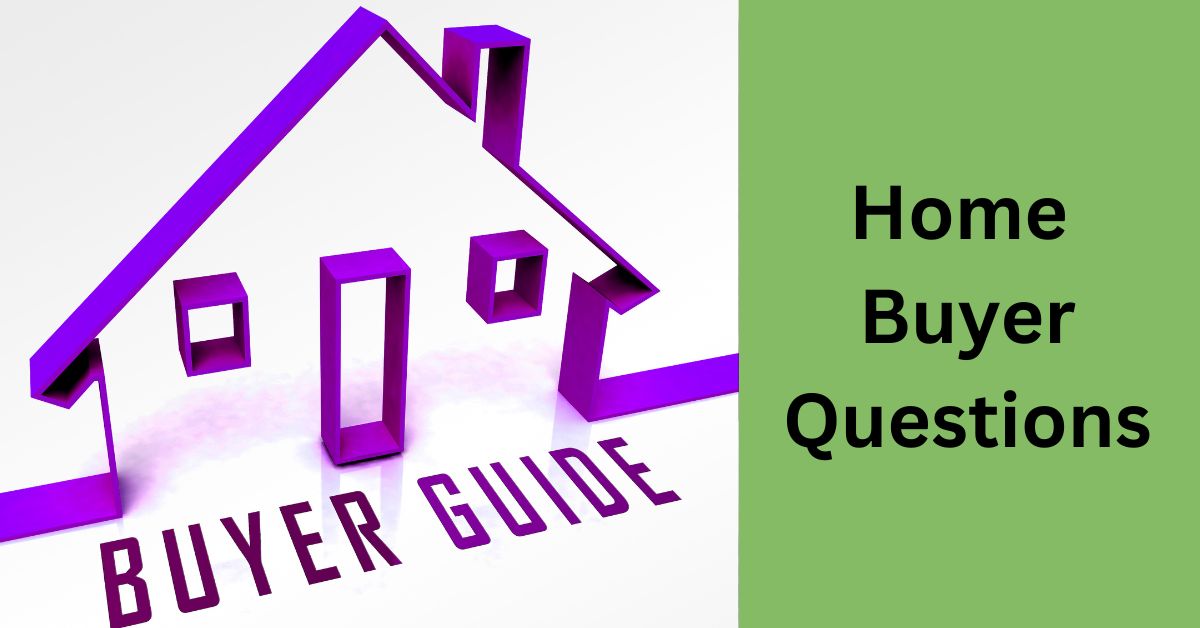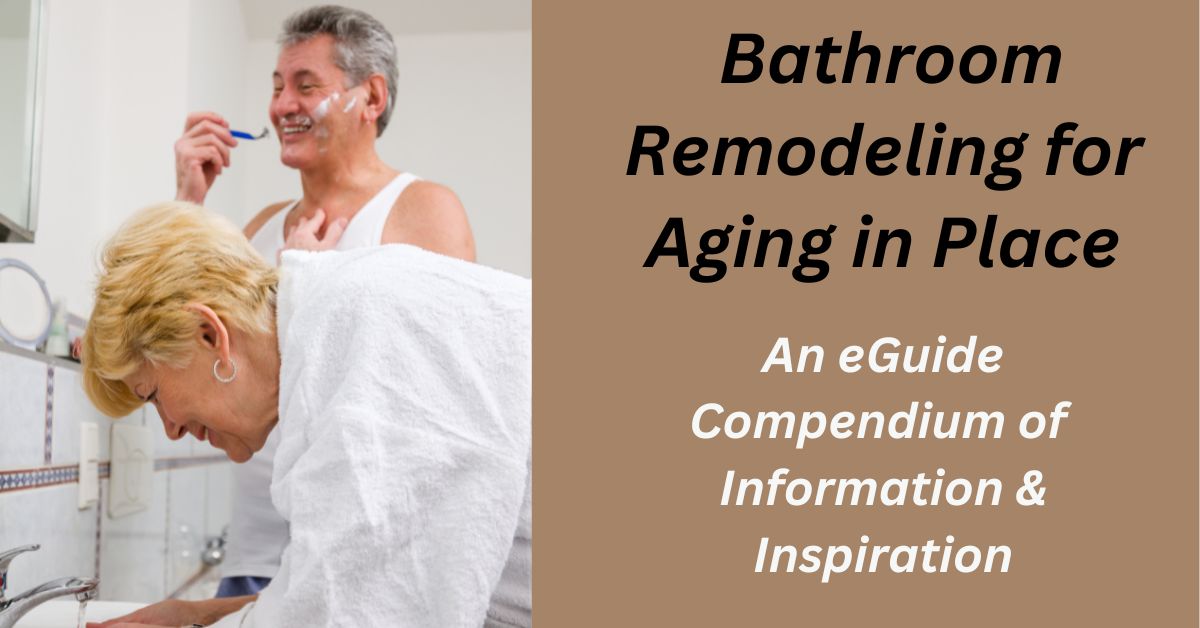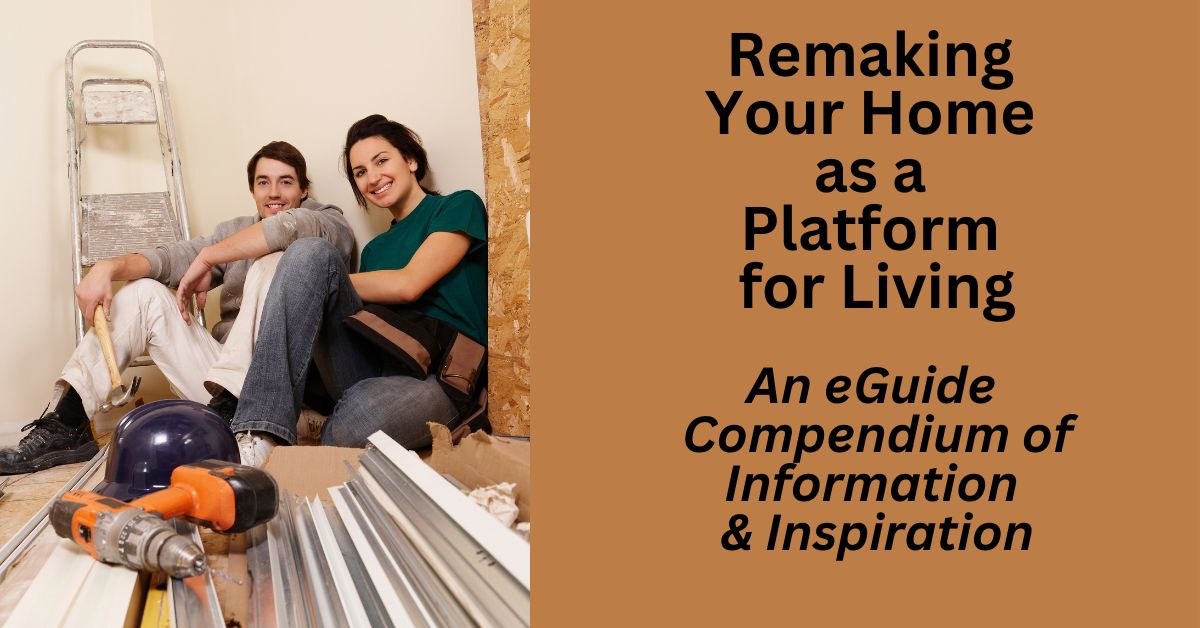Table of Contents
The Smart Home Buyer
A smart home buyer is an informed buyer. So home buyer questions should be top of mind If you are in the process of buying a home. And it doesn’t matter how many homes you have bought in the past.
First-time Home Buyers
Of course, a first-time home buyer will have more home buyer questions than an experienced buyer. But always have in mind three basic principles when buying a home.
First, there is no such thing as a stupid question.
Second, you shouldn’t always take the answer you get at face value. So, when in doubt ask again.
Third, the best people to ask are a buyer’s agent and a mortgage broker.
Take Nothing for Granted
During the brokerage part of my real estate career, I was the realtor/broker responsible for the purchase and sale of more than 1,000 homes and other properties. And even so, from time to time something new would come up. My point is that a buyer who is on his eleventh home may be a little rusty about the process and should take nothing for granted.
Whether you are buying your first home or your eleventh home, the process itself can be extremely stressful. And the best way to prepare yourself for what can be an ordeal is to be as educated as possible as to how the whole thing works. So always and relentlessly ask home buyer questions.
Home Buyer Questions to Ask
We’ll get you started by addressing frequently and universally asked home buyer questions. You can get more in-depth or clarifying answers from your realtor or mortgage broker. And bear in mind that all real estate is local and my own experience is entirely in California.
Q: Should I talk to a lender before looking?
A: Definitely, YES. It’s the first thing you should do. Here are the main reasons:
1: Until you have gone through the loan qualification process, you have no idea of the price range you can look in, how much cash you will have to put in as a down payment, or what your monthly loan payments are going to be.
If you are only qualified to buy a home in the $400,000 range, there is no point looking at homes priced in the $600,000 range.
2: You need to know what loan programs are available to you. For example, if you are a veteran, you may qualify for a VA loan, which has advantages. And if you are a first-time home buyer, there may be special programs for you. And, if you want to buy a home that needs repairs, there are loan programs for that too.
3: You need to understand the fees and other costs associated with a home purchase in your area. These can vary a bit from locality to locality. These fees may include escrow fees, prepayments, loan insurance fees, county fees, and title insurance fees. Now, in some areas, it is customary for the seller to pay for home title insurance, but you need to know this. The point is that your lender will be able to provide all these details.
4: Perhaps most important of all, you should have what is called a Prequalification Letter, or better still, a Pre-Approval Letter in hand when you start home shopping. In fact, you should preferably have it before you interview a buyer’s agent.
Prequalification Letter
A Prequalification Letter is a statement by the lender that tells both your realtor and the seller’s realtor that you are ready, willing, and able to buy the home you choose and that you are not just a lookie-loo wasting their time. In other words, it’s proof that you are a serious buyer and should be taken seriously. It puts you in a strong negotiating position.
Preapproval Letter
A Pre-Approval Letter is even stronger. It is an actual offer (but not a commitment) by the lender to lend you a specific amount of money open for 90 days.
- Related post: Remodel Financing Options
Q: What is the difference between a lender and a mortgage broker?
A: A lender is a financial institution, such as a bank, that will lend you money directly. A mortgage broker works with many lenders.
There are pluses and minuses to working with each. We recommend you talk to both a direct lender and a mortgage broker to get a feel for which better suits your circumstances.
- Related post: Loan Broker of Direct Lender
Q: What is a realtor?
A: The term Realtor® was coined in 1916, to identify real estate agents who belonged to the National Association of Real Estate Boards. This organization later changed its name to the National Association of Realtors®.
A realtor is held to higher ethical standards than a regular real estate agent licensed by the State.
A real estate broker is licensed by the State, in the same way as the agent, but generally has more education, training, and experience than an agent.
A real estate brokerage must be managed by a real estate broker, who employs the agents in the office.
Q: Should I engage a realtor when buying a home?
A: YES. But make sure you hire a buyer’s agent.
Here’s why you should engage a buyer’s agent.
A buyer’s agent only represents buyers. A listing agent represents the seller of the home on which he holds the listing. So, although the listing agent is ethically bound to be honest with the buyer, his or her main obligation is to the seller.
And, guess what? The listing agent wants to get the best possible price for the seller, not least because the commission is going to be higher.
If the listing agent represents both the buyer and the seller, a dual agency exists. In this circumstance, you stand to end up paying more for the home than necessary or than if you had a buyer’s agent representing you.
Dual agency is a bad idea and is illegal in some states.
Q: What home buyer questions should I ask when interviewing a buyer’s agent?
A: Here are the basic questions, together with the answers you should look for.
- Do you only represent buyers? You want a “Yes” answer.
- Do you do this full-time? You want a “Yes” answer.
- How many buyers are you working with right now? It’s great to work with a busy agent because this is an indicator of success, especially if s/he has a team.. But you need to know that he or she will have time for you.
- Can you provide client references? You want a “Yes” answer.
- What kind of clients and properties do you work with? You want to find a fit for you. Some agents specialize in investment properties, others in single-family homes. You need someone who specializes in homes like the one you want to find and with buyers like you.
- Do you work with a team of other professionals? You want a “Yes” answer. You will need more than a buyer’s agent. You will need other professionals, such as a mortgage broker, title insurance company, escrow company, and home inspector. If the agent is used to working with them it’s an indicator that the buying experience will be a smooth one.
Q: Who pays the buyer’s realtor?
A: In most cases, the seller pays all realtor commissions.
Normally the seller’s agent and buyer’s agent split the commission. But never forget that it all gets paid out of the price you pay for the home.
Q: I own another home. Should I sell it before I buy a new one?
A: This calls for one of those “It depends” answers.
If you own your existing home free and clear of any loan. Or if you can make your existing loan payments affecting your qualification for a loan on your new home, then the answer is: “It’s up to you. It doesn’t matter.”
Keeping your existing home
However, it’s always good to have somewhere to live while you are looking for your new home. Plus you are under no pressure to make a fast decision on your new home.
Unfortunately, most home buyers do not have the luxury of being in that position. And, from a financial standpoint, they must be able to stop loan payments on the existing home before being obligated to make payments on the new home.
Contingent offer
In this case, you are put in a relatively weak negotiating position on your new home, because any offer you make on your new home must be “contingent” on you selling your existing home by a specific time.
Now, in a strong seller’s market, your seller may simply reject your offer out of hand. On the other hand, in a weak market, your seller may be inclined to accept it.
Nonetheless, it is not a great offer. More so because the seller will typically insist on being able to accept a non-contingent offer over yours, resulting in you getting “bumped” from the deal and disappointed.
Selling and lease-back
An alternative approach could be to sell your existing home first, subject to a “lease-back” arrangement. This is when your buyer lets you stay in the house, subject to the terms of a lease, while you are house hunting.
Selling and renting
Yet another approach would be to sell your house and rent a home in your buying area on a month-to-month basis. This at least allows you to get to know the neighborhoods you might like to buy in.
Q: Should I buy or keep renting?
A: This is another of those “It depends” answers.
If interest rates are low, buying makes a lot of sense because rental payments may well be higher than mortgage payments for a similar property.
On the other hand, do you want the flexibility that renting gives you, especially if you rent month to month rather than on a lease? Owning a home pretty much locks you in place. This is because, what with the fees and other expenses associated with selling a home, you may lose money if you sell it after only a few years.
Another question to ask yourself is whether you are ready for the responsibilities that come with homeownership. Are you prepared for the maintenance expenses associated with homeownership that would otherwise be shouldered by a landlord.?
Q: Should I buy a foreclosed home?
A: Sure, if you can find one.
Foreclosures are also called REOs. REO means Real Estate Owned. These are properties that a lender has taken over because the borrower failed to make loan payments. They appear as negatives on the lender’s balance sheet because they are not earning income. The REO seller is motivated to sell.
Usually, foreclosures only come available in a soft housing market. If the market is hot, you are unlikely to find a foreclosure because, usually, homeowners can easily sell before the lender forecloses.
The problem with a foreclosure is that the property has likely been neglected and is in poor condition. So it needs a lot of work. And they are almost always sold “as is.”
This also means that the new owner is going to have to put in a lot of cash to fix it up. It also means that REOs are most likely to be bought by real estate investors, who have the resources to buy them at a discount, fix them up, and then sell them to retail buyers.
On the other hand, there are loan programs that allow you to buy and fix up a run-down property.
- Related post: Remodel Financing Options
Q: What about a short sale?
A: A short sale occurs in a “down” market, where the homeowner’s total loan obligations are greater than the market value of the property.
In this scenario, the homeowner has to sell but cannot afford to pay off the loans in full. Nonetheless, his lender has agreed to a loan pay-off that is less than the loan obligations.
Short sales are an option if they are available. But be prepared to face a property that is in disrepair and needs work. On top of that, the sales process is slow and uncertain because the seller’s lender has to approve it.
Q: What about rent-to-own properties?
A: Rent-to-own properties, like foreclosures, are a symptom of a down market.
A seller will only sell “rent-to-own” if he can’t sell for cash or cash-to-new-loan, which is the normal way of selling in a regular market. Besides, someone who buys “rent to own” is either 1) an end buyer with poor credit, who will not get good terms; or 2) an investor taking advantage of a desperate buyer in a down market.
By the way, the rent-to-own scenario is just one of the “creative” ways of selling real estate. We’ll cover others in a different post.
Bottom line: a buyer will get better terms and a better price if the purchase is paid in cash or financed through a regular lender in the usual way.
Q: How do I find out if I’m looking in a good neighborhood with good schools?
A: Your realtor has to be careful answering home buyer questions like this because there are ethical and statutory rules against “steering.”
Nonetheless, your Realtor should be able to provide pertinent information on crime statistics, schools, and more. And here are some great online resources for neighborhood information:
You should also do your research on the ground. Scout the neighborhoods of interest on your own. Go to Open Houses. Walk the neighborhood. Go to restaurants and shops. Get an on-the-ground feel for the area. Strike up conversations with the locals, especially potential neighbors.
Q: How many homes should I check out before buying one?
A: There is no specific number
Sometimes you can get lucky and simply fall in love with the first home you look at. If you do, thank your realtor for listening to your questions and finding a great list of homes for you to see.
On the other hand, you may find yourself checking out 20 homes or more before you can make a decision.
Q: How long has a home been on the market?
A: You should always ask this question.
If a property has been on the market for a long time (90 days or more), it’s an indicator that there are issues with it. The most likely reason is that it is priced too high. Discuss this with your realtor.
Q: How do I know what my utilities are going to be?
A: You can ask the seller for a copy of his utility bills or, in some cases, the utility company will provide this information.
But not everyone maintains a home at the same temperature or is home for the same amount of time during the day. So don’t rely on this information.
Q: How old are the roof, the appliances, the water heater, the HVAC system?
A: The answers to these questions are useful to know.
The age and condition of the roof could be deal-breakers. But issues with appliances can be covered by a home warranty policy. You should ask the seller to pay for the home warranty for one year. You will be responsible for maintaining it thereafter.
Q: What should I offer for the home?
A: Ultimately, what you offer is entirely up to you.
However, you should certainly talk to your realtor about this. Ask him or her these questions:
- What is your opinion of the house and what do you think it will appraise for? There is no point in making an offer and getting it accepted only to find out that it won’t appraise for the price agreed.
- What would be the lowest amount you should offer? You don’t want to make an offer so low as to insult the seller, such that he or she will reject it outright without even making a counteroffer. On the other hand, a seller usually expects to have some kind of negotiation on the price.
Q: How much should I put down as earnest money?
A: The larger the earnest money deposit (EMD) you put down, the better your offer looks to the seller.
If you really want this home, ask the advice of your agent on how much the EMD should be.
Q: Should I have a home inspection?
A: You absolutely should have a home inspection.
Depending on the part of the country you are in, there are other types of inspection, such as termite and radon, that may be appropriate. But a home inspection is always recommended. Your agent will likely insist on it and have you sign a waiver of inspection if you disregard the advice.
The purpose of the inspection is to uncover any defects in the property that may cause you to cancel your agreement or request a credit for repairs.
Q: What other home buyer questions should I ask?
A: Here are some suggestions:
1: What is included in the sale?
Fixtures, such as cabinetry and faucets, are almost always included. But appliances are not, since they are classified as personal property. So if you want the appliances included, make that is part of the offer. And, if there are items of furniture, yard equipment, or other stuff that you want, you can ask for these to be included in the sale too.
2: Why is the seller selling?
Knowing the reason for the seller moving out (job relocation, children moved out and downsizing, etc) is a clue to the seller’s motivation and flexibility on price.
3: Is there a homeowner association involved?
If so, what does the HOA pay for as regards landscaping and the maintenance of other common areas? If you are buying a condo, it is guaranteed that there will be an HOA involved.
4: What are the property taxes?
First-time homeowners are often shocked when they learn about property taxes. Ask your realtor about this. Property taxes are often based on what you paid for the home.
5: What type of insurance will I need?
Your lender will advise on what is required concerning hazard insurance. And you may be advised to take out flood, storm, or earthquake coverage.
Q: Should I do a final walk-through inspection before closing?
A: Yes.
It may be that some weeks have gone by since the home inspection. So it’s important to do a final walk-through inspection, in the company of your agent, to make sure that nothing in the home has changed. For example, make sure:
- The plumbing and HVAC systems are still running properly.
- There are no signs of roof leaks.
- All personal property (appliances etc) that you agreed as part of the purchase price are still there.
Conclusions on Home Buyer Questions
The questions we have covered here are probably the most important and frequently asked. But we don’t claim to have listed all the questions you should ask.
Our best advice is to stay alert and organized throughout the entire process.
And, when it comes to home buyer questions, we offer a slogan for all home buyers: ABA – Always Be Asking.





Leave a Reply